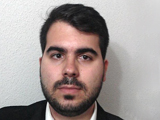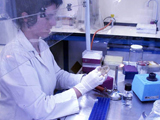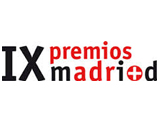The mobile apps industry has a huge potential and is experiencing strong growth rates. The use of this kind of apps is largely linked to that of social networks, but, in this era of explosive growth in the volume of information and the variety of resources, filtering the knowledge available is becoming increasingly challenging for the end user. The innovative SOCAM project aims at developing an open-source operating system for mobile devices. This OS will include a module for the analysis of social networks, aimed at feeding app recommendation engines. This tool will enable users to identify the apps that are best suited to their needs or preferences.
News

23 May 2013
Since the boom of the “World Wide Web” and up until recently, multimedia consumption over the Internet followed a very simple model. A user would use his PC to connect to a server and browse or download the available content from that same server. The last few years, emerging new technologies and devices have altered this traditional scheme of media discovery and delivery. The gigantic growth in popularity of Online Social Networks (OSNs), Content Distribution Networks (CDNs), video sharing websites, hand-held devices with multimedia capabilities and access to fast 4G/3G networks and finally peer 2 peer applications have shape-shifted the old centralized media dissemination model to a more distributed one, that often makes heavy use of wireless technologies.

21 May 2013
Michal Kryzcka is a new Alumnus of Institute IMDEA Networks, having obtained his PhD from University Carlos III of Madrid in February 2013. The title of his PhD Thesis was “Experimental analysis of the socio-economic phenomena in the BitTorrent ecosystem”

08 May 2013
The Telematics Engineering degree of the University Carlos III of Madrid (UC3M) leads the Top 50 University Degrees ranking published by ‘El Mundo’ newspaper in May.

24 Apr 2013
Jorge Ramón Muñoz has become a member of our Research Support team. He will be working as a Research Engineer in the SOCAM project, lead by Antonio Fernández Anta, Senior Researcher at the Institute.

18 Apr 2013
This year, the Madrid Region will allocate 16.1 million Euros to support the scientific activity of the Madrid Institutes for Advanced Studies (IMDEA, Institutos Madrileños de Estudios Avanzados), a cluster of research centers created by the Regional Government to direct research to the fulfillment of society’s demands and foster scientific and technological innovation in the region.

10 Apr 2013
They will be more efficient and less costly

09 Apr 2013
The increasingly widespread use of smartphones capable of delivering audio and video streaming has caused an exponential growth in the volume of traffic carried through mobile networks. This tendency will increase more strongly in the future, with forecasts that anticipate a hundred-fold increase in traffic by 2020. For the purpose of finding viable solutions to cope with this challenge, Institute IMDEA Networks is coordinating the iJOIN* European project. The increasingly widespread use of smartphones capable of delivering audio and video streaming has caused an exponential growth in the volume of traffic carried through mobile networks. This tendency will increase more strongly in the future, with forecasts that anticipate a hundred-fold increase in traffic by 2020. For the purpose of finding viable solutions to cope with this challenge, Institute IMDEA Networks is coordinating the iJOIN* European project.

04 Apr 2013
Wireless data communication is a constituent part of everyday life. Mobile communication devices have become essential to fully develop interpersonal relations and engage socially. In this context, the CROWD* project aims to drive the mobile network evolution, building high-capacity energy and resource-efficient wireless dense networks that can cope with future growth in traffic demand and also improve user performance.

03 Apr 2013
This category honours the research projects approved by the European Commission corresponding to the calls for projects falling within the Cooperation Programme of the 7th Framework Programme, coordinated by research groups from Public Research Centers forming part of the madri+d research and development system.


